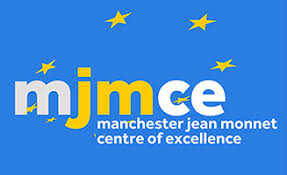
The European Forum for the Study of Religion and the Environment
in association with the Lincoln Theological Institute
and the Jean Monnet Centre of Excellence
is pleased to announce its sixth international conference
to be held remotely by Zoom
Religion, Materialism and Ecology redux!
Friday 14 May to Saturday 15 May 2021
**Registration is closed**
CONFIRMED KEYNOTE SPEAKERS
Rachel Armstrong (Newcastle University, UK)
Architecting Zoë: On Haunting Homes
Whitney Bauman (Florida International University, and Berlin)
Developing a Critical Planetary Romanticism (CPR) for the Earth
Bruno Latour (Sciences Po, Paris)
Down to earth as an occasion to review the meaning of incarnation
Erik Swyngedouw (University of Manchester, UK)
Linn Marie Tonstad (Yale University)
PANELS
Mary Keller, Yianna Liatsos, Carol Wayne White: States of Smallness
Richard Carp, Todd LeVasseur, Sarah Pike, Paul Pule: Queering materialism and Practices of (Climate) Repair
SHORT PAPERS
Full list of short papers with abstracts is available HERE.
The short papers SCHEDULE is HERE.
CONFERENCE PROGRAMME
The conference programme is HERE.
TIME ZONE TROUBLES? Click Here For Assistance.
FORUM BUSINESS MEETING
The Forum will also hold its business meeting during the conference on Saturday 13.30-14.00. All Forum members are welcome to attend. The Secretary's report is HERE. The proposed list of officers/committee for 2021-23 is HERE. Here is a proposal for a conference theme for EFSRE VII.
Conference Administrator: Alex Shaw
Conference Chair: Peter Scott EFSRE.VI@manchester.ac.uk
CONFERENCE THEME
Because of changes brought about by, among other things, a warming climate, there has been a revival in materialism. Although there is little agreement on what ‘materialism’ means, this revival is certainly a reaction against a widespread instrumentalism regarding ‘dead matter’. At the very least, its resurgence relates to the return of non-human nature—if indeed nature ever left. The core aim of many of these materialisms is to understand matter in more animated and active ways—a sort of Romantic turn or an undoing of the postmodern end of nature. Options here include the “new materialism” (Bennett, Barad), speculative realism (Morton), and ‘actor-network theory’ (Latour). This has led to many objections from the ‘old’ materialists (i.e. Marxists) who understand nature more in terms of a factor in production and may be more cautious about ascribing agency to nature (Malm). There have also been constructive developments regarding materialism within Marxism such as metabolic rift theory (John Bellamy Foster, Paul Burkett). Feminist theorists (Haraway, for example) have been addressing the issue of materialism already especially in relation to animal and technology studies. At issue are a range of issues, including hierarchy, the nature of relationality, the relation between nature and society, human and other agencies, and ‘world picture’. The conference will aim to explore some of these new developments, including how materialist issues impinge upon religious traditions and the extent to which religions are already materialist and so have a creative contribution to make to debates about ecological materialisms.
For and on behalf of the Conference Committee
